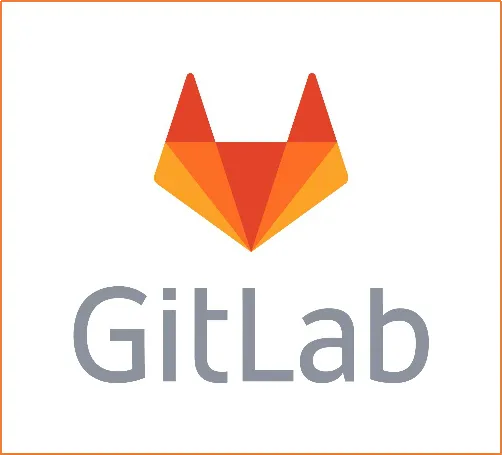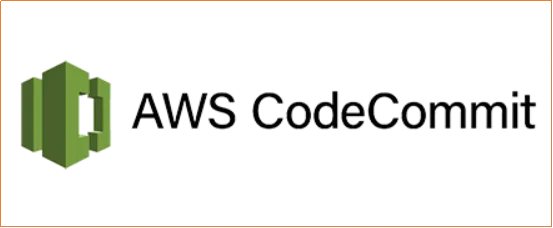Code Management software can also be termed as Version Control Software (VCS). The team of developers uses this to manage their code versions individually and everyone in the team can track the changes from the code repository. It is also possible to compare previous versions with the current version before commit, and you can also revert to the previous versions as well.
Table of Content
- 1. Github
- 2. Gitlab
- 3. Azure DevOps (Microsoft Team Foundation)
- 4. Google cloud repository
- 5. BitBucket
- 6. Beanstalk
- 7. AWS CodeCommit
- 8. Metaflow
- 9. Cacher
- 10. Assembla SECUREGIT
- 11. Conclusion
Code Management software has become an indispensable tool that helps software development companies overcome the burden of enormous code management and alleviates the enterprise strain. In this blog, we will figure out the details of all essential code management software.
Github

“We've used GitHub since the start of our company. I'd heard good thingsabout it from independent software developers, and looking into it I found it robust enough for our collaborative needs but also easy to use and understand.
GitHub has always been very transparent in its development and addition of features, and they've listened to feedback from their users. I've never experienced security issues, nor have I dealt with downtime from them. They've been incredibly reliable when it comes to code management.
I'd honestly recommend GitHub to most developers. It's just the easiest way to collaborate on and manage code, and it's becoming an industry standard for a reason.”
- Dan Bailey, President of WikiLawn
“We use Github for code management as it's cheap, easy to use with a great UI + design, and very powerful. It has great user management too. We use Github Actions to automatically run our test suites and deploy code to different staging environments. It's been extremely helpful for automating our code management process.
It seems like Github is shipping big new features every month! I was worried about the product quality when they were acquired by Microsoft but there hasn't been any negative effects (yet).”
- Macgill Davis, Software Developer and Startup Founder of Rize
“At my business, we use GitHub. It is affordable and user friendly. It works well with remote teams, and we can restrict and allow access as needed. I chose GitHub because it has helped other prominent tech and streaming companies and is utilized by some substantial businesses. I used to use a more expensive product that offered the same features, there was nothing wrong with that software, but GitHub can provide all the same security, alerts, and tools at a fraction of the price.”
- Laura Fuentes, Operator of Infinity Dish
“During the pandemic, we’ve started using GitHub.It’s truly amazing as it allows developers to mentor code changes, managers to monitor developers and c-level executives to monitor all projects.”
- Shannon Wilks, Account Manager at RKWO Ltd
“There are so many code management software out there in the market. Personally, my company uses Git. It is a free and open-source distributed version control system designed to handle everything from small to very large projects with speed and efficiency. Git is easy to learn and has a tiny footprint with lightning-fast performance. It outclasses SCM tools like Subversion, CVS, Perforce, and ClearCase with features like cheap local branching, convenient staging areas, and multiple workflows. It allows and encourages you to have multiple local branches that can be entirely independent of each other. The creation, merging, and deletion of those lines of development takes seconds.”
- Jennifer Willy, Editor at Etia.Com
“We use Git for a variety of reasons. First, it handles both small and large-scale projects and we can use it for a variety of in-house projects. It offers strong support for non-linear development and pluggable merge strategies. Overall, it’s the most logical choice for anyone with a bigger development team.”
- DmytroOkunyev, Founder of Chanty
Gitlab

“GitLab comes with an intuitive and well-thought user interface that is very convenient and boosts up the productivity in a daily development routine when tracking changes, reviewing code or discussion without a need for 3rdparty services. From the administration side GitLab offers plenty of options for User and Project management, so managing users, projects, groups and setting up proper privileges is very easy.
Moreover, it has built-in Continuous Integration and Continuous Delivery. We really like Gitlab for it’s CI/CD, which is relatively easy to set up and works like a charm without 3rd party services.
You can set up a self-hosted instance so you are more independent and have full control over the data, scaling and availability. If you need more CPU or memory, you can just upgrade your server. If you need to speed up CI, you can add more runners at any time. GitLab itself provides zero downtime upgrades, however, if you need to do some maintenance you can plan ahead so are experiencing almost no downtimes during the work.
GitLab Issue Tracker is a great tool and sometimes is just more convenient to use it over Jira (eg. when you are working on an internal project). We like that GitLab offers such an option and it works pretty well for us forinternal projects.
It provides plenty of integrations and well-documented API - we don’t use many integrations but some of them might boost up the team’s productivity. If you don’t like built-in CI you can always use a 3rd party solution like Travis CI or CicleCI. Do you want to have Slack notifications when you build success or your product fails or when Merge Request is created? GitLab triggers will let you know about your pipeline status or new Merge Request.
Moreover, if you don’t want to spend much money on code management software, GitLab is a way to go - it offers a Free plan for teams of any size.”
- Piotr Sobusiak, CTO of Applover
“We uses GitLab to manage code ranging from embedded firmware, tomobile and PC applications, to server-side backends and APIs. GitLab's extensive collaboration features (including issue tracking, merge requests, code review, markdown support, and inline diagrams with Mermaid and PlantUML) help us keep our remote-first team informed and connected. Its built-in continuous integration (CI) simplifies automated testing, and lets us run specialized hardware in-the-loop (HIL) tests, which are especially important when developing safety-critical software.”
- David Rea, Senior Engineer and Partner at AppliedLogix
Azure DevOps (Microsoft Team Foundation)

“We use Microsoft Team Foundation for managing code, and specifically for peer review of code. We don't like any code to go without review, no matter how experienced the programmer. Everyone makes mistakes in code, everyone writes inelegant code blocks. Having more pairs of eyes on it only helps the app development process.
Microsoft Team Foundation has been stable and reliable for us, which is mostly what we're looking for. It allows for easy version control and collaboration, as well as in-editor review so the script doesn't have to be downloaded and opened up in a script editor. I have no complaints with it, currently. It does everything we need it to do.”
- Rex Freiberger, CEO of Discuss Diets
Google cloud repository

If you are looking for a privately hosted platform that allows you to track and manage the modifications on large codebases, then the Google Cloud repository is the best. It supports some excellent features such as fast deployment and debugging, fully-managed Git, limitless private repositories, rapid code search, smooth integrations, audit logs, etc.
BitBucket

BitBucket is not just a platform for code management, but also a perfect place for project planning, code collaboration, test, and deployment. Talking about the feature support, it provides integration support for Trello and Jira, secured workflow, etc. It allows a maximum of five collaborators to use a free private repository.
Beanstalk

Beanstalk stands as an exceptional platform that allows you to write, review, and deploy the source code. With this, you can easily create the branches, add files, and edit the branches instantly in the browser eliminating the need for the client. It keeps the complete team on the same page. You can also view the history of files and commits.
Looking to hire custom software development company? Contact Now.
AWS CodeCommit

“One of the best reasons to use AWS CodeCommit is its flexibility. It allows us to manage private repositories in a very simple way which makes it very easy to use, besides that it provides security, high scalability, and accessibility of them. No need to have physical servers which is a huge cost on the company. Even though it is on a cloud it is more like a private infrastructure and highly secure. One of the drawbacks of AWS CodeCommit is Code review and resubmit flow is not available which should be essential.”
- SimonasSteponaitis, Marketing Manager at Hosting Wiki
Metaflow
“We use Metaflow as a code management software. Surprisingly, Netflix initially developed it to increase the efficiency of its data scientists who work on diverse, in-depth learning projects.
Metaflow is a Python library that offers data scientists a framework to structure the code as a DAG. When we run a DAG, the Metaflow library handles serialized objects and stores them in a new location. Moreover, it stores metadata and provides information about the run.
Execution of data science projects from prototype to production requires an infrastructure stack, and Metaflow provides a unified API to it. We use Metaflow with most of the data science libraries, including Tensorflow and PyTorch. It has a user-friendly approach to navigating the stack by enabling us to write models as idiomatic Python code.
It doesn't reinvent the stack but integrates human-centric API that provides a unified approach to navigating the stack.”
- Michael Yurushkin, CTO & Founder of BroutonLab
Cacher

“Being a software developer, having a code management tool is essential. In a development team of four, we use Cacher software to manage and share code. Cacher is a snippet organizer tool which allows adding codes for over 100 languages. It is available for Windows, macOS, and Linux. You can also use the web app or install the extension on Google Chrome.
When I need some code, I request my colleague who sends me the code whichthen I can use or save. Other than that, the tool offers:
- Syncing with GitHub Gist
- Markdown editing
- Command-line interface for too many snippets.
The free version of Cacher allows creating unlimited public code snippets while you can also create 15 private. When you sign up, they give a free trial to see how it works. If interested in the premium, then you can subscribe or enjoy the trial for free, which automatically converts to free plan.”
- Madhsudhan, Director and Writer of mksguide.com
Assembla SECUREGIT

Known for economical and fully supported solution, Assembla offers SecureGit in the cloud platform.Assembla is a multi-repository platform that stands out in terms of accessibility. Auditing and real-time reporting features makeit stand apart from the crowd.
Conclusion
In this blog, we have learned how the Code management tools help us while modern website and application development. Comprising magnificent features, these tools play a splendid role in source code management. All these tools provide a fabulous repository and the workflows are established through the patterns and procedures of merging branches. Moreover, it also eliminates the overhead of massive code management and shared resources.























